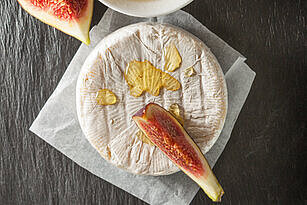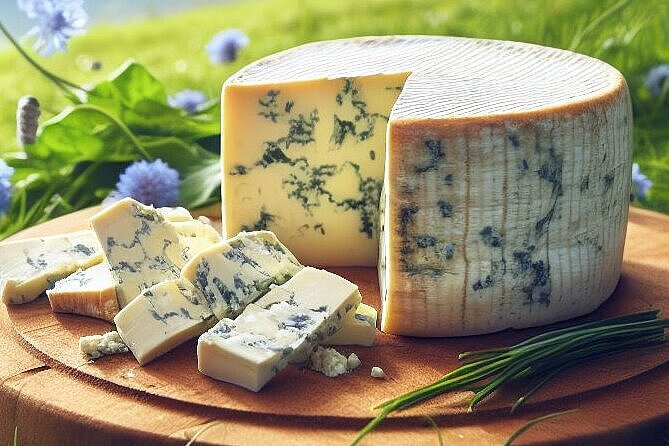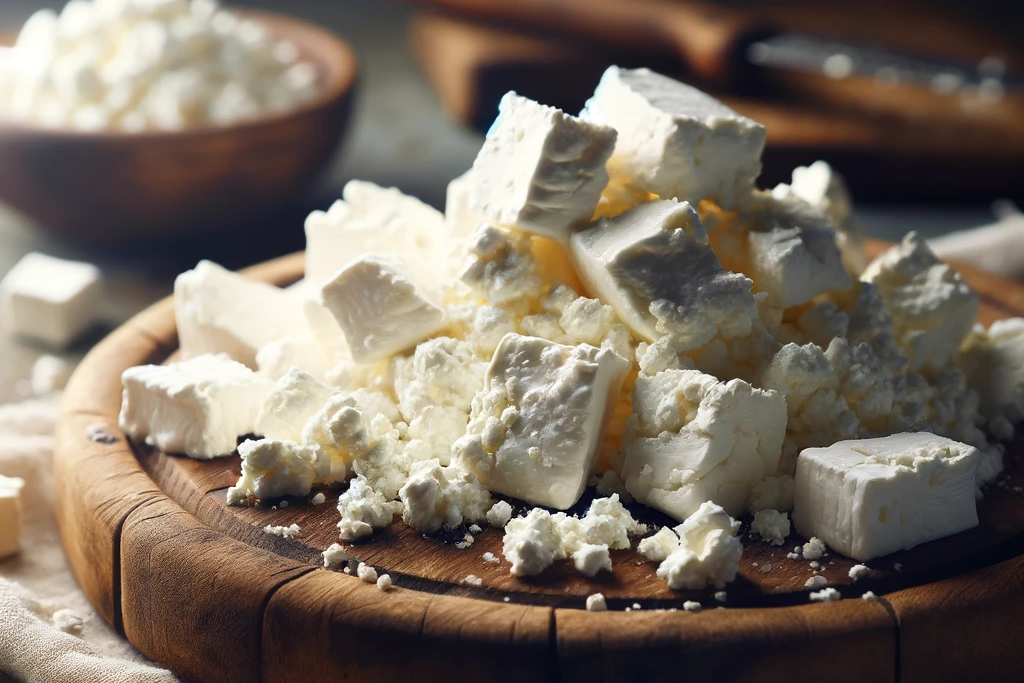Camembert

Camembert is a soft cheese made from cow's milk that originally comes from Normandy in France. It has a white moldy rind and a creamy, slightly salty taste. Camembert is a popular cheese for humans, but what about dogs? Can your dog eat Camembert? What are the advantages and disadvantages of this cheese for your four-legged friend? In this article, you'll find out everything you need to know about Camembert for dogs.
Benefits of Camembert for dogs
Camembert contains a number of nutrients that are important for dogs. These include
- Protein: Camembert is a good source of protein for dogs, helping to build and maintain muscles, skin, coat and immune system.
- Calcium: Camembert is rich in calcium, a mineral that contributes to strong bones and teeth. Calcium also supports the function of nerves and muscles.
- Vitamin A: Camembert contains vitamin A, a fat-soluble vitamin that is important for vision, growth and skin health in dogs.
- Vitamin B12: Camembert contains vitamin B12, a water-soluble vitamin that is involved in the formation of red blood cells. Vitamin B12 also helps with the utilization of folic acid and supports the function of the nervous system.
Disadvantages of Camembert for dogs
However, Camembert also has some disadvantages for dogs that need to be considered. These include
- Lactose: Camembert contains lactose, a milk sugar that some dogs cannot digest well. Lactose can lead to diarrhea, flatulence or vomiting in sensitive dogs.
- Fat: Camembert is a very high-fat cheese, which can lead to obesity or pancreatitis if eaten in excess. High-fat foods can also raise cholesterol levels and increase the risk of cardiovascular disease.
- Salt: Camembert is a salty cheese that can increase sodium levels in the blood. Too much sodium can lead to thirst, dehydration or high blood pressure. Salt can also put a strain on the kidneys or lead to poisoning.
- Mold: Camembert has a mold rind that is edible but may also contain mold spores. Mold spores can cause allergic reactions or respiratory problems in dogs. Molds can also be toxic or cause gastrointestinal problems.
How much Camembert can my dog eat?
Camembert is not poisonous for dogs, but should only be fed in moderation. The amount depends on your dog's size, weight and state of health. As a rule of thumb, no more than 10 percent of your dog's daily calories should come from treats such as cheese. This means, for example
- A small dog (up to 10 kg) should eat no more than 10 grams of Camembert per day.
- A medium-sized dog (10 to 25 kg) may eat a maximum of 20 grams of Camembert per day.
- A large dog (over 25 kg) may eat a maximum of 30 grams of Camembert per day.
You should only ever give your dog small pieces of Camembert and observe how he reacts to it. If there are any signs of intolerance or discomfort, the cheese should be stopped immediately.
Properties 10
Are you looking for other ingredients with a specific property?
Just click on them to find more.
If you notice any signs of hypersensitivity or poisoning in your dog, you should see your vet immediately. We are not a substitute for a vet, but we try to be as accurate as possible. Every dog reacts differently and we recommend you get a second opinion or consult your vet if in doubt.
Stay healthy and take good care of your four-legged friend!😊
Similar to Camembert
Brie is a soft cheese from the blue cheese family. It is made from pasteurized or raw cow's milk and mixed with lactic acid bacteria and mould. The mold rind forms during the ripening process and...
Roquefort is a cheese named after the village of Roquefort-sur-Soulzon in the south of France. It has a protected designation of origin, which means that it can only be produced in this region under...
Gorgonzola is a soft cheese with at least 48% fat in dry matter that is produced in the Italian regions of Piedmont and Lombardy. It has a protected designation of origin and may only be produced in...
Feta is a soft cheese that originated in Greece and is matured in brine. It has a white color and a crumbly texture. Feta can be made from pure sheep's milk or from a mixture of sheep's and goat's...



